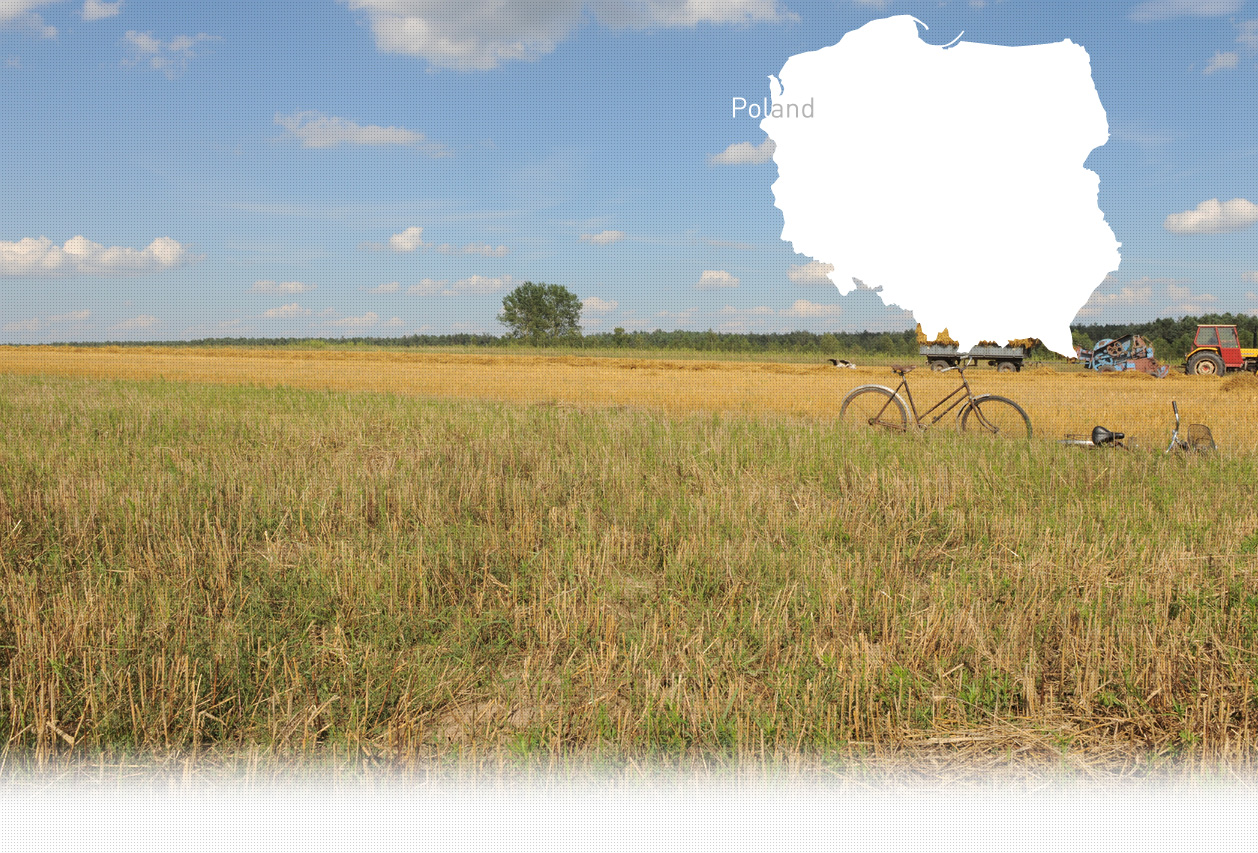

1 Killing site(s)
Bronisław B., born in 1932: “Before the war, Maćkowice was mainly inhabited by Ukrainians. There were 360 Ukrainian families as well as several Polish and Jewish families, about ten, if I remember well. Local Jews were small merchants. When the war began, the Germans created a kind of a ghetto in a local manor that belonged to Mr. Skibiniewski. In the barn of that manor, the Germans placed Jews from both Maćkowice and other villages: men, women, and children. At that time, my older brother worked in the manor, as well us many other local villagers. That’s why I would go there every day to bring him lunch. I would not enter the manor grounds because it was guarded by Germans and Polish Policemen. I would meet my brother on a field near the manor and give him food. One day, it was in the summer of 1942, before harvest, I went there as usual to meet my brother and I saw the Jews being taken to the nearby ‘Dębina’ forest by the Germans in the blueish uniforms. I suppose this German unit probably came here from another town. In the column they were escorting, there were whole families of Jews: men, women and children of all ages. They were all shot in that forest (…)” (Witness N°1017, interviewed in Maćkowice, on May 06, 2019)
Court Inquiries about executions and mass graves in districts, provinces, camps and ghettos. RG-15.019M Reel#11 FILE 35, 36 and 37.pdf p.527-526, village of Mackowice, powiat of Przemysl, Subcarpathian Voivodeship:
1. Date and place of execution: August 1942.
2. The type of execution / shooting, hanging or other types: shooting.
3. Data on executed victims: 34 Jews were shot by Ukrainian gendarmes and militia; the bodies of the victims were buried by the inhabitants of Mackowice in a mass grave in Mackowice;
Maćkowice is a village within Przemyśl County, Subcarpathian Voivodeship, in south-eastern Poland. It lies about 9km from Przemyśl where a huge Jewish community of about 20.000 people lived before the war, making Przemyśl one of the places with the largest concentration of Jews in the region. Before the outbreak of the Second World War, Maćkowice was mainly inhabited by Ukrainians (about 360 families), as well as several Polish and Jewish families. YIU’s witness Bronisław B., born in 1932, remembered that Jewish families from Maćkowice were mainly small merchants. He remembered three Jewish traders: Moshe, Mechel and Jugiel. The Jews had a house of prayer in the village but no Jewish cemetery. They were buried in Przemyśl.
When the Germans occupied the village of Maćkowice in September 1939, they directly changed the local administration from Polish to Ukrainian. They appointed a new Ukrainian soltys, the head of the village. According to available archives, the Germans gathered the Jewish residents of Maćkowice, Orzechowce and Ujkowice in the manor where they were supposed to work in the summer of 1942. Bronisław B., born in 1932, remembered that this ghetto was established in the barn of a manor owned by Mr. Skibniewski which was administrated by a German called Weiss during the occupation,. About 30 Jews were gathered there for around one month. Many non-Jewish people from the village worked there as well and carried out agricultural work, among them Bronisław’s brother. Bronisław would go there every day to bring his brother lunch, so he remembered that the ghetto was guarded by Germans and Polish or Ukrainian policemen. According to the archives, at the end of summer 1942, most probably in June, the Jews from the ghetto were transported to the nearby forest and shot by German and Ukrainian policemen. The bodies of 34 men, women, and children were buried at the site of their execution. That day, Bronisław was taking lunch to his older brother and that’s how he became the eyewitness of this execution: “I saw it from afar. They were taken to the nearby forest called Dębina. The pit was dug by the Jews themselves before the shooting. The Jews, of all ages, were placed around the pit and shot with machine guns. After the execution, the pit was filled with lime and soil by local Ukrainians (…)” Only two men managed to avoid being killed: Junek Frankiel and Salomon Ehrenfreud. The latter fled to Orzechowce, his family’s village, where he found shelter at the house of his neighbors, Franciszek and Magdalena Banasiewicz. The Banasiewicz couple were awarded with the title of Righteous Among the Nations in 1991.
An exhumation was carried out after the war. The bodies of the victims were reburied at the Jewish cemetery in Przemyśl.
Do you have additional information regarding a village that you would like to share with Yahad ?
Please contact us at contact@yahadinunum.org
or by calling Yahad – In Unum at +33 (0) 1 53 20 13 17